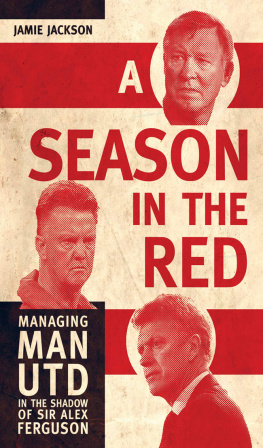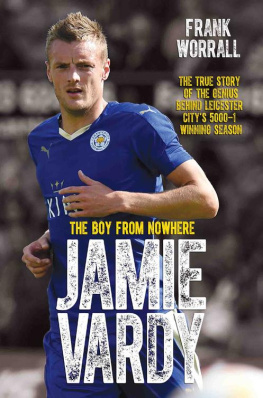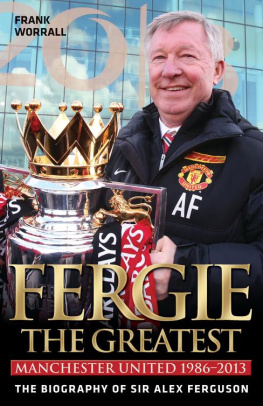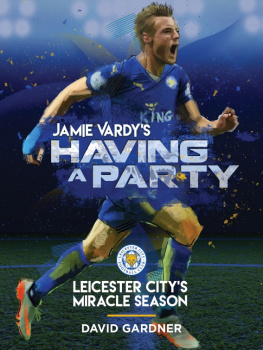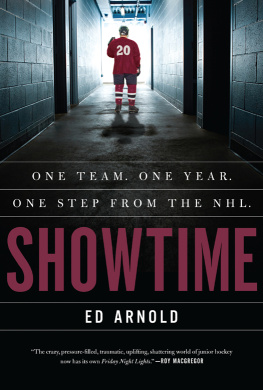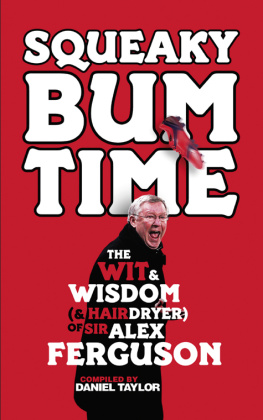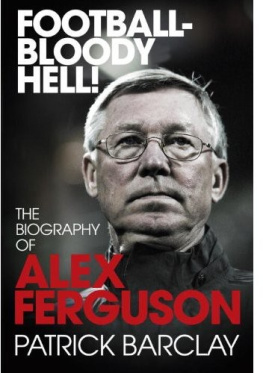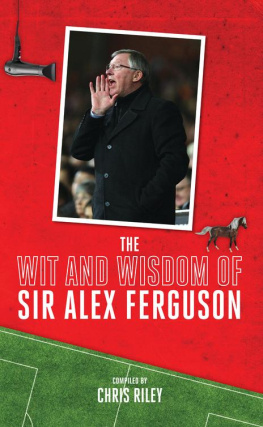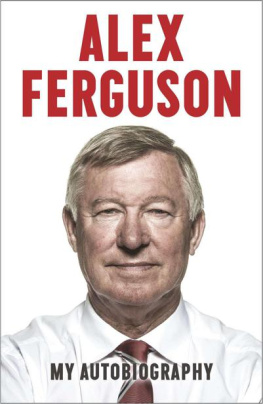For Gaynor, my adorable wife, Sonny and Martha,
my other two angels: you have all written this with me.
xxx
CONTENTS
LIST OF ILLUSTRATIONS
THE DAY
D avid Moyes is alone. The morning of 22 April 2014 is beginning to lighten and he contemplates the wreckage of an unfinished season, a career rocked, a dream soured. He is in the managers office at Carrington, the training ground of the worlds most famous football club, Manchester United. On the door, in white capital letters on a black border, the name plate reads: David Moyes. He remembers his first official day, 1 July 2013, and being photographed by the door, next to his name. Then the picture of him sitting where he sits now, new in the job he is still new in the job the desk bare, before settling into the challenge many other managers of reputation might have baulked at: being the immediate successor to Sir Alex Ferguson.
He had taken a moment when no one else was around to try his predecessors chair for the first time because I thought I would have to see how it feels in case anybody thought I looked stupid. He looks around the office now and it is bare once more. The room is spacious and there are large windows looking out on to the training pitches of the rebranded Aon Training Complex. He sits in the black leather chair at the long, angled desk and gazes at the computer screen, the HD TV, the SKY+ remote, the Manchester United mouse-mat cut in the shape of the club badge.
David Moyes is thinking, clearing his head. Soon the building will come to life with people arriving to start their daily routine at British footballs most successful club. The twenty-times champions. The defending title-holders. Winners by a street last season. With an irresistible swagger. This was the legacy bequeathed by Ferguson, the greatest manager in domestic football history, perhaps anywhere.
Now United stand seventh in the Premier League. They are sinking and everyone is laughing. Not to his face, but he knows they are. A lot of people have waited a long, long time for this. The decline and fall of the great Manchester United Empire after nigh on three decades of Fergusons rule. Finally it has happened. Not gradually, this is a collapse. A sickening freefall, a public disrobing. It is David Moyess fault, they say. All his fault. The players dont believe in him anymore, if they ever did. Neither do the fans. And the media, well, they have no loyalty, but who does? This is football in the twenty-first century.
This is where David Moyes wants to be. In this office, where he sits now, having left Everton after eleven years of good,solid, consistent management. This office that was Fergusons: The Great Ferguson who personally anointed him, drove his candidacy, rubber-stamped him to the owners, the Glazers. This office inherited from a bona fide managerial genius. And it is his, David Moyess, though not for much longer an hour or so, but not much more.
Then Ed Woodward will come. Eight oclock, he said. By then the statement will already have been drawn up in a much smaller office elsewhere at Carrington by Uniteds media department. Meet at 8 a.m. at the training ground, Woodward ordered, and nothing else. This was all the executive vice-chairman needed to say. The story had leaked on the websites of the national newspapers the day before. At 3 p.m., Easter Monday, this was how Moyes found out. Not from the club. Not from Woodward, man-to-man, but from journalists. Bloody hacks. The Manchester football correspondents latest splash. Moyes could not believe it could not believe he would not be told first. This is Manchester United were talking about, he will say later. But it was true. He had been utterly humiliated by Manchester United.
In the end, he had been forced to believe it. Forced to go to bed and endure a listless, sleepless night, knowing that when he awoke it would be ended. Now the desk is cleared, it is bare again, and David Moyes is showered after a final run around the training pitches. In the dark, alone, running over the grass that should have been his domain for six years, at least. He is still a fit man, the hands-on tracksuit manager who insisted on taking training sessions. But the photographic evidence of these past ten months is unavoidable. In three days he turns fifty-one, but he looks a decade older, gaunt, the face more lined, the brightblue of his eyes dimmed, and he is pale-skinned and skeletal. He needs a break but he does not want one. Not when it is enforced by what is about to come this morning.
Then David Moyes, ever dignified, will address the players, speak to a group who let him down so badly. From champions by eleven points to seventh position with only four games left, twenty-three points behind the leaders, Liverpool, who are back on their perch again. The players who in this traumatic season in this difficult, soul-searching year of David Moyess life went to the press behind his back to voice their doubts while failing to do what they are paid small fortunes each week to do: perform and win football matches. He will say goodbye and wish them good luck for the future. Then drive away. Drive away from Carrington, for the last time.
THE DAYS AFTER
David Moyes: What upset [my wife] was the fact that I was being told by members of the press that day that I was out. I just never expected that to happen. I would never have left a job. The job at Everton was so good. I worked for a great chairman, great people at the club. It was not easy to begin with at Everton, either. We had a couple of tough years before we had the club the way we wanted it. But the reason I went to United was because I thought I was joining a club that would give me time. I saw what I thought were important similarities between United and Everton. Like the focus on developing young players. To have been appointed as manager of Manchester United, one of the biggest football clubs in the world, was, and remains, something of which I will always be incredibly proud.
I was devastated to lose the job because it was something I felt I could make a real success of. We knew it was going to take time to make the necessary changes. It was going to take time to evolve. But we were in the process of making other important changes. In the end, I dont feel I was given time to succeed or fail. I know it comes with the territory, and I know if you lose matches you risk being sacked. But how it affected my family made it hard.
THE DAY BEFORE
There is a calm, clear sky over the M60 as I receive confirmation of the story from sources that David Moyes will be sacked as Manchester United manager. The report will go live on the Guardian website at 3 p.m. Except Moyes does not know yet. It is 11.30 a.m., 21 April 2014. I, along with the rest of the Manchester football correspondents, am about to break news that will leave Moyes livid at finding out first from journalists rather than his employers. The story will reverberate around the football world and shake Manchester United. Tremors that will be felt all summer as Louis van Gaal replaces the Scot. Tremors that will continue to be felt when the Dutchman, onetime mentor to another managerial Colossus, Jose Mourinho, has an awful beginning to the following season as new manager, overseeing the poorest start since 198687 when Ron Atkinson was sacked. But that is all in the future. Moyes has been a dead man walking since the insipid 20 Champions League reverse to Olympiakos in Athens in February. The consecutive 30 home league defeats in March to Liverpool and Manchester City, Uniteds two fiercest and for many fans most detested rivals,confirmed the culling of Moyes as inevitable. The timing was a mere, final detail.

